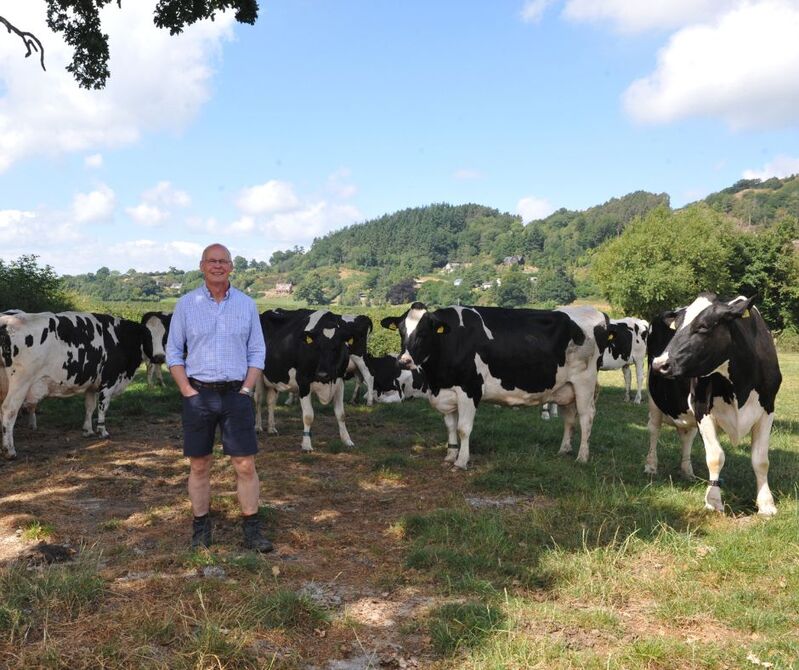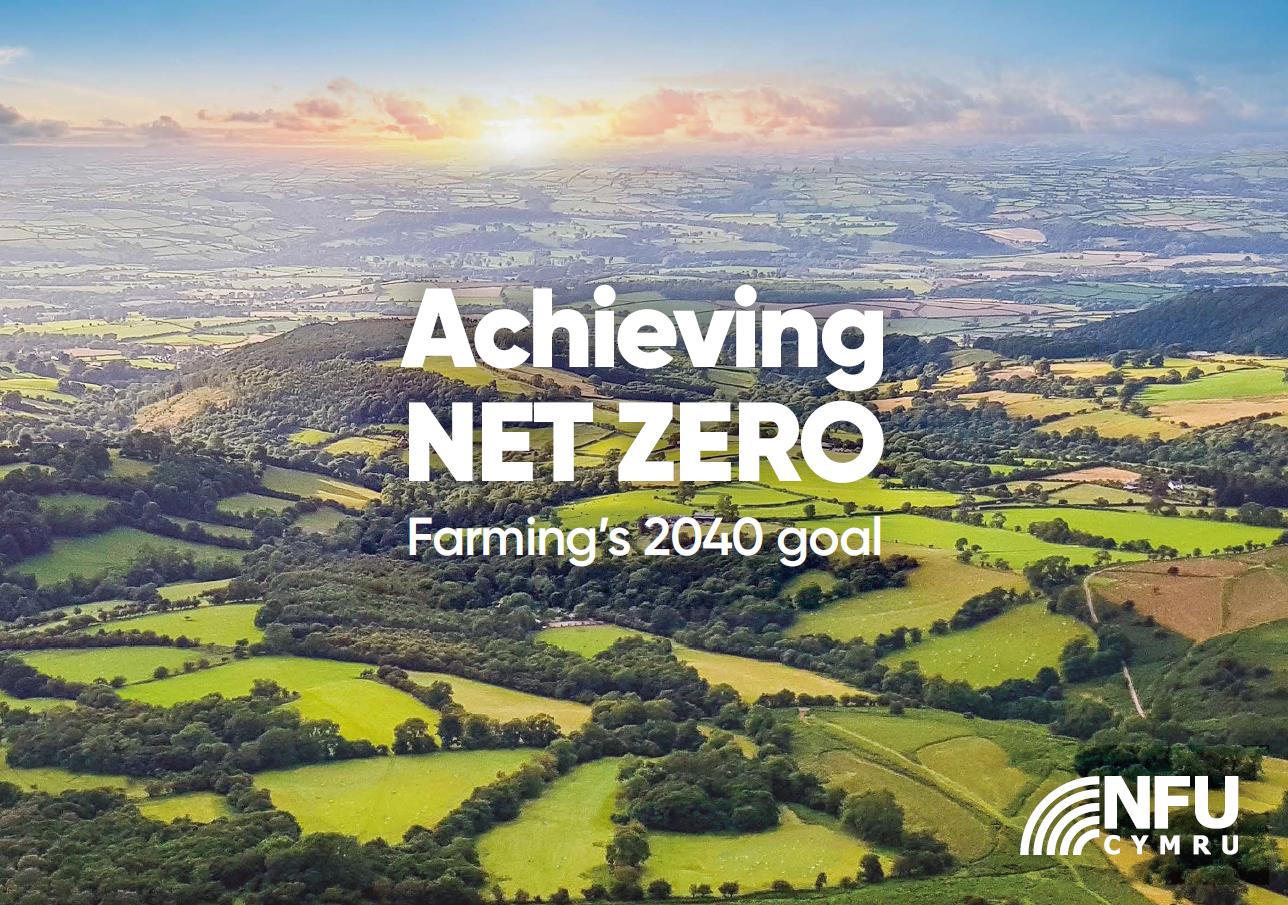A 200ml glass of milk can provide 35% of your daily calcium intake, it’s naturally rich in vitamin B12 which helps our immune system work normally and is an excellent source of protein. But as well as this, Welsh and British milk offers much more than meets the eye.
Net zero
You may have heard that the NFU have set the ambitious target of reaching net zero greenhouse gas emissions across the whole of agriculture in Wales and England. That’s 10 years before the UK Government’s target, and dairy farmers are already well on that journey to help us all reach our climate change targets.
How the industry will achieve our ambitious target
- Boosting productivity
The first one is boosting productivity and reducing emissions through developments in animal breeding and grassland management. Improving farming’s productive efficiency will enable farmers to produce the same quantity of food, or more, with less inputs, in smarter ways. This, in turn, will enable the sector to reduce its greenhouse gas emissions. Happy and healthy cows have a lower carbon footprint, that’s why farmers do everything they can to ensure cows are content and in great physical condition. On my farm, our cows wear monitors which allow us to track their wellbeing and adjust their diets and our practices accordingly.
2. Renewable energy
The second is better use of renewable energy. Welsh and British farmers are already embracing the use of renewables, harnessing solar, wind and hydro power. In fact, farmers produce enough renewable energy to help power on average 10 million UK homes. With the right infrastructure and government policies in place, we can do even more in this area. On my farm we work with a neighbour to supply slurry to mix with their poultry manure, to produce 1Mw of electricity through anaerobic digestion. This also produces valuable nutrients in the form of digestate, which reduces our need to buy in artificial fertiliser.
3. Carbon sequestration
And thirdly, carbon sequestration. This is our ability to pull carbon out of the atmosphere and put it back into the soil. Farming is already responsible for a critical carbon resource in soils, peatlands, wooded landscape and semi-natural habitats. UK livestock production across all sectors contributes 7% to the overall UK greenhouse gas emissions, compared to transport and energy which combined contribute 45%.
Up for the challenge
We know we have a part to play in combatting climate change. British farmers support over 1 million hectares of woodlands and forests. British farmers have also planted 30,000km of hedgerows since 2005 – that’s long enough to reach to Australia and back. So we’re up for the challenge of feeding an ever growing population with safe, quality, affordable and sustainable food.
By buying Welsh and British dairy products, consumers can be safe in the knowledge that not only are they choosing a nutritiously dense, tasty product, but they’re also helping Welsh and British farmers reach our 2040 net zero goal.

